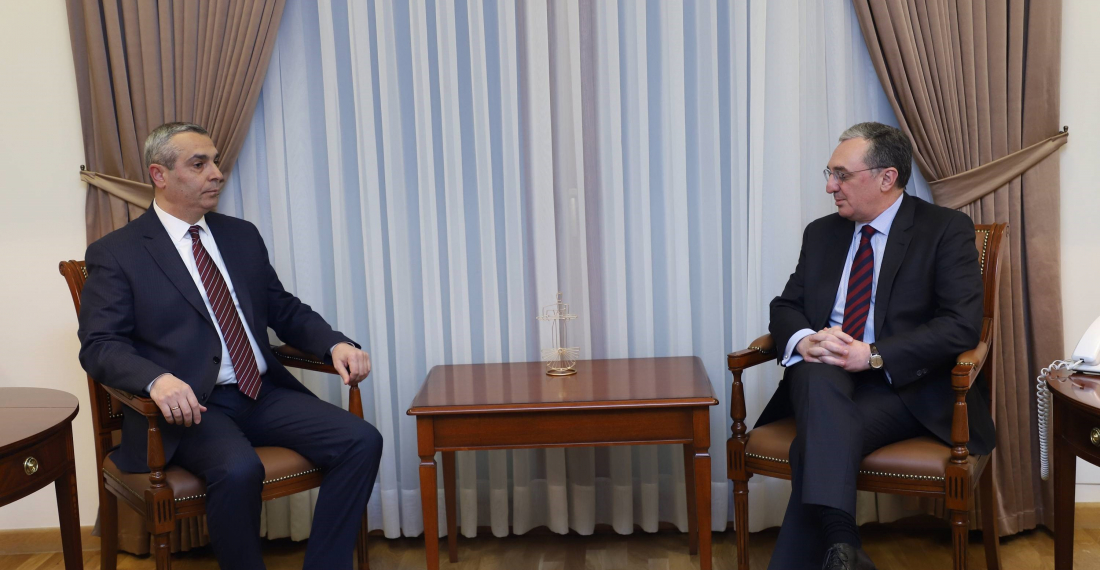Ahead of key talks on Karabakh, likely to take place later this week, the Armenian government has been co-ordinating its position with the de facto leadership of the self-declared Nagorno-Karabakh Republic (NKR).
The next phase of negotiations on the peaceful settlement of the Karabakh conflict is expected to see the foreign ministers of Armenia and Azerbaijan meeting in a major European city with the mediation of the three OSCE Minsk Group co-chair countries - France, Russia and the United States. After months of relative quiet on the line of contact in the Nagorno-Karabakh conflict zone there are hopes that the Armenian and Azerbaijani governments may now be ready to move the peace talks to a more substantive level.
The website of the Armenian Foreign Ministry reported that on Saturday, January 12, Foreign Minister Zohrab Mnatsakanyan met Masis Mailyan, the de facto foreign minister of NKR, where the agenda of the meeting with the Co-chair countries was discussed and the two "exchanged views on the exclusively peaceful settlement of the Nagorno Karabakh conflict under the auspices of the OSCE Minsk Group Co-Chairs."
The statement said that:
"Foreign Minister Mnatsakanyan "reiterated the principles of the settlement of Nagorno-Karabakh issue enshrined in the program of the Government of Armenia back in May 2018. He particularly stressed that the status and security of Artsakh are priorities for Armenia and once again highlighted the importance of decisive voice and engagement of Artsakh in the peace process. Zohrab Mnatsakanyan underlined that those involved in the settlement process with Armenia are well aware of this position. Moreover, the meetings held during the recent months in this framework have recorded positive dynamics.
The Foreign Minister of Armenia emphasised that the genuine commitment of all the parties to the conflict to reach peace is needed for the settlement of the issue. The sides stressed the importance of steps aimed at excluding tension, using mechanism for risk reduction and its continuous development, which are an integral part of establishing environment conducive to peace. The Ministers outlined that abandoning bellicose rhetoric can best define the commitment to peaceful settlement.
The parties once again underlined that peace is a priority, but it shouldn't be confused with the lack of determination."
(Editorial note: The term "Artsakh" is used in lieu of nagorno-Karabakh or Nagorno-Karabakh Republic in official Armenian statements).
source: commonspace.eu
photo: Zohrab Mnatsakanyan and Masis Mailyan at their meeting on 12 January 2019







